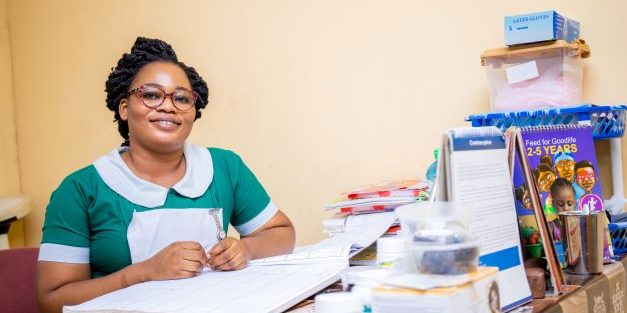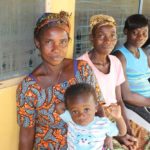Introduction
The recent series of unprecedented overlapping health crises is a reminder of the need for nations to build resilient health systems. As emerging global pandemics continue to have substantial impact on health systems’ ability to provide essential health services, countries must re-strategize their technical actions, investments, monitoring approaches and innovations for developing and sustaining strengthened health systems including a well-functioning primary healthcare (PHC) in order to protect themselves during public health emergencies.
According to a recent World Bank report, a well-designed PHC has the potential to help flatten the curve during health emergencies like COVID-19 by providing measures such as surveillance, testing, contract tracing, community outreach and vaccine coverage, and in keeping hospitals from overflowing with critically ill patients.
This, as well as several other research and reports, emphasizes the need for a robust and resilient PHC system that is more accessible to communities, responsive, affordable to all, prevents diseases, and empowers people to live healthier lives.
Despite the Ghana Health Service’s 2021 Holistic Assessment report indicating significant progress in the country’s health system in recent years, the effects of recent global health crises have been compounding and undoubtedly hindered the country’s ability to make rapid progress in quality health service delivery.
PHC in Ghana
Ghana recognizes PHC as the cornerstone of universal health coverage (UHC) as affirmed in both the Alma Ata Declaration of 1978 and Astana Declaration of 2018; thus, access to fully functional primary care facilities is critical to the attainment of UHC. UHC requires reasonable geographical access for all Ghanaians as well as good preventive health services; effective supportive social services; and adequate financial resources for health service delivery.
In Ghana, two significant health-system levers; the National Health Insurance Scheme (NHIS) and Community Health Planning Services (CHPS) compounds play an important role in building robust and sustainable PHC and, by extension, achieving UHC. While the NHIS is critical for resolving health financing constraints for vulnerable sections of the population; the CHPS compounds functions to improve geographical and social access to basic health care for underserved communities.
However, significant gaps in these key health system levers among other factors restrict the country’s capacity to achieve a strong PHC. Several CHPS facilities have been recognized as being partially functional, making service delivery at the community level challenging. It is estimated that less than 40% of CHPS zones and 50% of health centers have the necessary equipment to deliver quality services. Often, medications at these facilities are out of stock compelling people to resort to unorthodox methods such as herbs, concoctions, spiritualists, etc.
Similarly, despite the successful implementation of the NHIS in Ghana, the scheme faces a number of challenges ranging from poor coverage, poor financing to insufficient focus on PHC-related concerns.
Way Forward
The importance of a stronger health system in Ghana cannot be overstated. As the first point of contact within the national health system for individuals, families and communities, a robust PHC not only provides high-quality care and services, but it also helps to reduce the danger and effect of acute public health emergencies that jeopardize people’s health.
Achieving a comprehensive PHC requires strong political will and commitment to ensure that diagnosis of gaps in the health sector and global commitments on UHC are translated into concrete actions.
To provide quality services to the most vulnerable in urban slums and hard-to-reach areas, the CHPS, which remains a critical component of the health system infrastructure and the primary vehicle through which PHC services are delivered, must be improved through increased human resources, infrastructure, equipment, and community participation and ownership.
According to a WHO African Region report, most African nations fund less than 50% of their health budget. There is the need to increase investment in national health budget, including the NHIS, especially during these critical health emergencies, to provide equal access to adequate, high-quality, and affordable health care for all people including sexual and reproductive health (SRH) services for women and girls of reproductive age.
Furthermore, there is a need for effective surveillance and response systems, particularly at the community level, to provide early detection of evolving outbreaks and to obtain data on developing outbreaks, as early identification enables implementation of effective disease containment measures.
We continue to urge Government, the Ministry of Health (MoH) and the Ghana Health Service (GHS) to prioritize health workers, particularly those at the peripheral healthcare facilities to ensure the delivery of essential health services and protection of the population especially the less privilege against current and emerging public health emergencies.
We need strong PHC for an effective pandemic response, equitable recovery, and progress towards the attainment of SDG 3.



